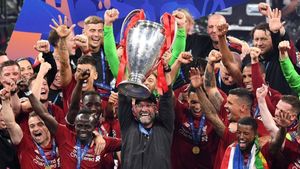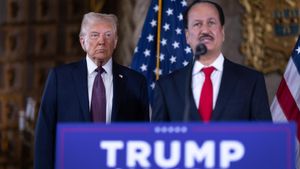A legal dispute has ignited fresh tensions around the Kashi Vishwanathar Temple on Thiruparankundram Hill, following a petition to the Madurai district collector by Muthukumar, a lawyer based in the region. The petition seeks permission for the ritual offering of piglets at the Hindu temple amid opposing views from local religious groups.
The controversy has roots deep within the region's sacred lore and contemporary struggles over religious practices. Muthukumar's petition proposed regular rituals where Lord Shiva is depicted feeding piglets with milk, symbolizing compassion and the lifting of curses rooted in local mythology. He intends for devotees to bring piglets as offerings during the ceremonies, which he requests to be held annually on the first new moon day of the month of Thai.
The backdrop to this petition is charged with religious friction. Recently, Islamist groups, allegedly linked to the now-banned Popular Front of India’s affiliate, the Social Democratic Party of India (SDPI), publicly protested against their own sacrificial rites at the nearby Sikandar Auliya Dargah mosque.
Central to the origin of Muthukumar’s petition is the local mythology, which cites the Vellalars—twelve individuals cursed by divine forces for violating the principles of Shaivism. According to tradition, these individuals were reincarnated as piglets, leading to the ritualistic significance of these animals within the temple offerings. "To lift the curse, Lord Shiva assumed the form of a mother pig and fed the twelve piglets," provides historical and cultural depth to the petition and the subsequent discussions it has ignited.
The proposed rituals have met resistance from the HR&CE Department and local authorities, who have previously denied Muthukumar's attempts to institutionalize such offerings at the temple. The rationale behind these denials appears hinged on maintaining peace among the varied community beliefs and practices tied closely to the land.
Despite the opposition, Muthukumar remains resolute, stating, "Enabling the ritual of offering piglets is not just about the animals; it's part of honoring our traditions and allowing devotees to express their faith freely. The temple should be a space for such practices!" His words echo the sentiments of many who feel deeply connected to their religious heritage.
Meanwhile, the protests at the Dargah have highlighted existing tensions, prompting authorities to file cases against organized groups involved. The protests have raised questions about the coherence and recognition of differing religious practices within the same sacred geography—a challenge as old as religious practice itself.
Currently, the status of the Kashi Vishwanathar Temple remains under scrutiny from both community members and local governance bodies. The refusal to permit traditional rituals reflects broader societal fractures, and the impact of Muthukumar’s petition could either bridge the divide or exacerbate it, depending on how authorities move forward.
A decision on the lawyer's request by the Madurai district collector remains pending. Observers note the importance of this case; it’s not solely about piglets at the temple—it’s echoing through the fraught atmosphere of inter-religious dialogue and the enforcement of shared spaces.
What remains to be seen is whether the HR&CE Department will relent, allowing the ancient practice to thrive, thereby granting what many devotees see as their rightful celebration of faith. This conflict invites questions about the future of this sacred site and the balance between different communities’ beliefs.
With legal disputes around temple land ownership, every detail—historical claims, community sentiments, and emotional ties to the sacred—is under the lens. Through this lens, Thiruparankundram Hill stands as not just a significant religious landmark, but also as a symbol of the complexity of modern Hindu-Muslim relations within India.



